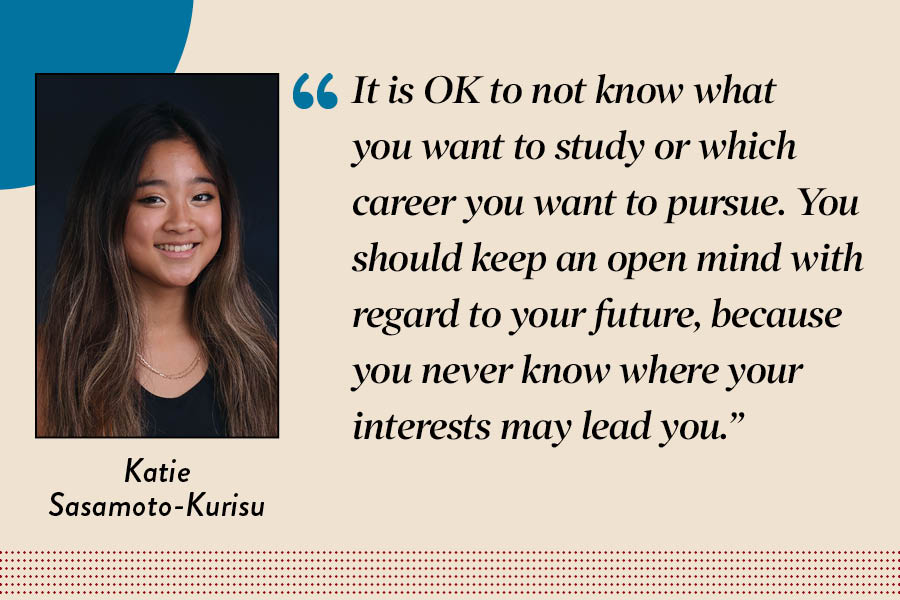“What do you want to be when you grow up?”
This is a question I was asked countless times when I was younger, by teachers, relatives and others, and I’m not alone. Now that I’m a senior, the question has turned into a conversation about what I want to study in college, and not long after, what job I want to pursue. I still don’t know the answer.
At U-High, it often feels like everyone knows exactly what they want to do for their future career. Involved academic teams like Science Olympiad and Model United Nations alongside professional opportunities like the Summer Link program enable students to develop robust academic interests in a direct way.
While this environment can be academically motivating, it can also be intellectually inhibitive and downright misleading. Despite the diversity offered in school co-curricular programming, many students still believe some majors and academic fields to be more desirable or valuable. I myself at times have been vulnerable to these sentiments, but I extend a universal message to my peers: It is OK to not know what you want to study or which career you want to pursue. You should keep an open mind with regard to your future, because you never know where your interests may lead you.
In fact, about one-third of all undergraduate students in the United States change their academic major before receiving their bachelor’s degree and about 10% change more than once, according to the National Center for Education Statistics. It is important to understand that personal interests — especially those academically or career oriented — are subject to change at the high school and undergraduate level.
Further, an estimated 20-50% of first-year students enter college undeclared. While some students may view this as a path that may hinder progress toward an intended career, most schools require general education requirements as part of their academic programming regardless. This structure leads most students to take courses in numerous disciplines, often sparking curiosity in an unexpected academic interest outside of their original major.
About 10-25% of college students graduate with a double major. At some more selective institutions, this number is closer to 40%. Interdisciplinary study is and will continue to be a catalyst for academic innovation, especially in a rapidly changing world.
There is no “right” major or career path. Your interests — personally, socially and professionally — will most likely change. It is easy to feel drawn to specific academic disciplines because they may seem to be a fast-track to a successful career. But the reality is major choice and related decisions are simply one factor in your academic journey and one catalyst for scholarly exploration. I encourage you to pick what truly interests you — you may be surprised — and pursue it. It just might change your life.





















































